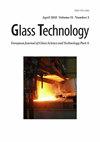人工智能对聊天机器人技术的影响:当前进展与领先创新研究
IF 0.5
4区 材料科学
Q4 MATERIALS SCIENCE, CERAMICS
Glass Technology-European Journal of Glass Science and Technology Part a
Pub Date : 2023-08-15
DOI:10.47672/ejt.1561
引用次数: 0
摘要
人工智能(AI)已经对各个行业产生了深远的影响,其中一个突出的领域是聊天机器人技术。聊天机器人是一种模拟人类对话的计算机程序,随着人工智能的进步,它已经进化得越来越复杂和智能。本研究报告旨在探讨人工智能聊天机器人技术的现状,重点关注最新进展和领先创新。该研究深入研究了自然语言处理(NLP)算法、机器学习模型和深度学习技术在聊天机器人开发中的应用,以深入了解它们的能力和局限性。该研究还强调了人工智能聊天机器人技术的领先创新,如虚拟助手和语音聊天机器人。这些对话代理已经改变了许多行业,为虚拟参考服务和客户-公司互动提供了创新的解决方案。该研究深入研究了聊天机器人可以提供的上下文理解和个性化响应,提供量身定制的交互,以满足用户的特定需求和偏好。此外,语音识别和情感分析等其他技术的集成增强了聊天机器人的能力,提高了用户满意度和参与度。然而,尽管人工智能聊天机器人提高了用户体验、客户满意度和客户支持和服务等行业的效率,但它们也引发了潜在的道德和隐私问题。特别是医疗聊天机器人,带来了法律和道德上的挑战,需要仔细管理和制定适当的道德框架。了解人工智能对聊天机器人技术的进步、创新和影响,对于认识这些系统带来的潜在好处和挑战至关重要。通过解决道德和隐私问题,聊天机器人可以负责任地塑造人机交互的未来,进一步促进对人工智能在改变行业和增强用户体验方面的作用的更广泛理解。本文章由计算机程序翻译,如有差异,请以英文原文为准。
The Impact of Artificial Intelligence on Chatbot Technology: A Study on the Current Advancements and Leading Innovations
Artificial intelligence (AI) has had a profound impact on various industries, and one prominent domain where its influence is evident is in chatbot technology. Chatbots, computer programs designed to simulate human conversation, have evolved significantly through the advancements in AI, becoming more sophisticated and intelligent. This research paper aims to explore the current state of AI-powered chatbot technology, focusing on the latest advancements and leading innovations. The study delves into the application of natural language processing (NLP) algorithms, machine learning models, and deep learning techniques in chatbot development to gain insights into their capabilities and limitations. The research also highlights leading innovations in AI-powered chatbot technology, such as virtual assistants and voice-enabled chatbots. These conversational agents have transformed various industries, providing innovative solutions to virtual reference services and customer-company interactions. The study delves into the contextual understanding and personalized responses that chatbots can provide, offering tailored interactions to meet users' specific needs and preferences. Furthermore, the integration of other technologies, including speech recognition and sentiment analysis, enhances chatbot capabilities, improving user satisfaction and engagement. However, while AI-powered chatbots have enhanced user experiences, customer satisfaction, and efficiency in industries like customer support and service, they also raise potential ethical and privacy concerns. Medical chatbots, in particular, pose legal and ethical challenges that require careful management and the development of appropriate ethical frameworks. Understanding the advancements, innovations, and impact of AI on chatbot technology is essential for recognizing the potential benefits and challenges these systems present. By addressing ethical and privacy concerns, chatbots can responsibly shape the future of human-computer interactions, further contributing to the broader understanding of AI's role in transforming industries and enhancing user experiences.
求助全文
通过发布文献求助,成功后即可免费获取论文全文。
去求助
来源期刊
CiteScore
0.30
自引率
0.00%
发文量
0
审稿时长
>12 weeks
期刊介绍:
The Journal of the Society of Glass Technology was published between 1917 and 1959. There were four or six issues per year depending on economic circumstances of the Society and the country. Each issue contains Proceedings, Transactions, Abstracts, News and Reviews, and Advertisements, all thesesections were numbered separately. The bound volumes collected these pages into separate sections, dropping the adverts. There is a list of Council members and Officers of the Society and earlier volumes also had lists of personal and company members.
JSGT was divided into Part A Glass Technology and Part B Physics and Chemistry of Glasses in 1960.

 求助内容:
求助内容: 应助结果提醒方式:
应助结果提醒方式:


